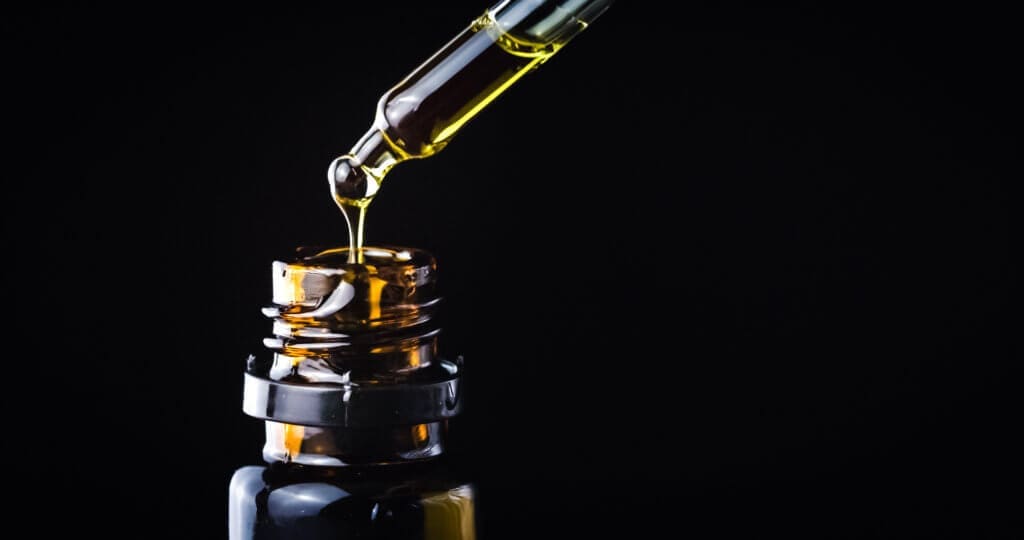CBD, or cannabidiol, comes from the Cannabis plant. While some people confuse CBD with marijuana, it’s a very different substance. CBD is primarily a hemp derivative. Hemp and marijuana are the same plant species; however, hemp plants contain less than .3% THC or tetrahydrocannabinol. It’s that THC in marijuana that gives users the “high” feeling. However, since CBD comes from hemp, CBD on its own contains only a minuscule amount of THC–not enough to have any psychoactive effects. Instead, CBD is known for creating a calming effect on the body. There is also some confusion about CBD-related products sold in dispensaries and how they are different from those found in grocery and convenience stores. In states where marijuana sales are legal, licensed marijuana sellers (like dispensaries) often sell products that contain a combination of CBD and THC. There’s a whole body of research about the impact of combining CBD with THC that’s beyond the scope of this article. Still, the important takeaway is that these products are very different from CBD-infused drinks, topical ointments, and other supplements sold in convenience stores.
Who buys CBD products?
CBD can be found in many items, including oils and tinctures, food drinks and edibles; skincare; and household items. In addition to getting attention for being a natural alternative to chemical compounds, CBD is used to reduce pain, relax muscles, lower stress, manage insomnia, and combat anxiety symptoms. Many consumers choose CBD as a natural way to alleviate health issues and avoid consuming laboratory-derived drugs and chemicals. 64% of Americans are aware of CBD, and 33% of American adults have used CBD products at least once. Of those, 22% claimed the CBD product helped them supplement or replace a prescription or over-the-counter drug. As of 2019, consumers purchased 34% of CBD products from a retail store. Younger demographics are more likely to use CBD. The percentage of people in an age group who said they use a CBD product regularly are: Ages 18 to 29: 20% Ages 30 to 49: 16% Ages 50 to 64: 11% Ages 65+: 8% CBD sales by state vary greatly. California accounts for nearly 75% of CBD sales as of 2020. Florida, New York, Washington, and Colorado round out the top 5.
of CBD, and 33% of American adults have used CBD products at least once. Of those, 22% claimed the CBD product helped them supplement or replace a prescription or over-the-counter drug. As of 2019, consumers purchased 34% of CBD products from a retail store. Younger demographics are more likely to use CBD. The percentage of people in an age group who said they use a CBD product regularly are: Ages 18 to 29: 20% Ages 30 to 49: 16% Ages 50 to 64: 11% Ages 65+: 8% CBD sales by state vary greatly. California accounts for nearly 75% of CBD sales as of 2020. Florida, New York, Washington, and Colorado round out the top 5.
Why should you consider carrying CBD products?
The CBD industry is gangbusters right now. New Frontier Data estimated CBD market growth from $390 million in 2018 to $1.3 billion in 2022. Another study by BDS Analytics and Arcview estimates sales could exceed $20 billion by 2024. Experts feel that as more studies about the health benefits of CBD are completed and consumer confidence in the product grows, sales will increase exponentially. If you are seeking to diversify your product line and attract new customers, carrying CBD-related products may help you achieve your goals. As helpful as CBD may be to people who seek something to relax their bodies and minds, the promotion of CBD products is highly regulated. First of all, state laws regulate whether or not businesses can sell it, where they can sell it, and what types of CBD products are allowed. Second, regulations prohibit marketers from promoting CBD as a drug and limit the wording that can be used to discuss possible health benefits.
Do people get addicted to CBD?
Many business owners are concerned about the harmful effects of the products they sell. The good news is that CBD is not linked to addiction. As with other medications, CBD can have side effects. About a third of CBD users said they experienced non-serious side effects such as dry mouth, euphoria, hunger, irritated eyes, or fatigue. Michael Hall, MD, and founder of the Hall Longevity Clinic said the most common side effects associated with CBD-based products include sleepiness, sedation, and lethargy; elevated liver enzymes; decreased appetite; diarrhea; rash; fatigue, malaise, and weakness; insomnia, and possible interaction with some prescription medications.
When you need to diversify your convenience store products, contact GP Energy.
Finding the perfect product mix to meet your demographic’s needs is challenging. By partnering with GP Energy, we can help your business unlock its potential with new opportunities and achieve unimaginable success. Our experienced team can assess your business and the markets each location resides in and recommend programs that will add more profits to the bottom line. Contact us today, and let’s get started.



